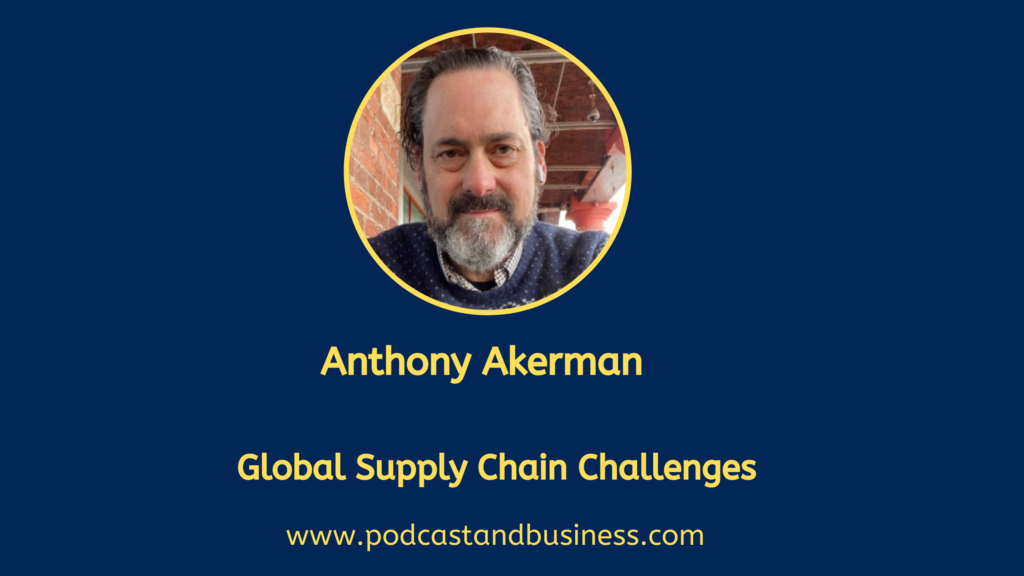Ep. 291 Global Supply Chain Challenges
Nowadays, global supply chain companies are navigating within an unpredictable environment.
The global supply chain is a complex network that connects manufacturers, exporters, importers, and providers of rail, road, and maritime transport.
Almost 90% of the products traded worldwide use vessels to transport all kinds of merchandise, and 60% are in steel containers.
However, part of the global challenges in the worldwide supply chain is the impact of this sector on climate change; the CO2 emissions.

Some companies in the maritime industry are working toward reducing their emissions and have very clear what are their ESG goals.
For example, the Danish company A.P. Moller – Maersk, a leader in the sector, is working and making efforts to reduce greenhouse gas emissions; they are working to accelerate fleet decarbonization with eight large ocean-going vessels to operate on carbon-neutral methanol.
To discuss these topics, our guest is Anthony Akerman, Global KC Director FMCG (Fast-moving consumer goods) at A.P. Moller – Maersk the crucial challenges and opportunities of the global supply chain and decarbonization in the maritime industry, emissions, and ESG.
- What has been the company’s approach
- What are the biggest challenges with the new fuels
- Maritime companies are on the path to being net-positive companies
The time to act is now, if we are to solve shipping’s climate challenge. This order proves that carbon neutral solutions are available today across container vessel segments and that Maersk is committed to the growing number of our customers looking to decarbonize their supply chains. Further, this is a firm signal to fuel producers that sizable market demand for the green fuels of the future is emerging at speed.
You can contact Anthony Akerman on LinkedIn.
